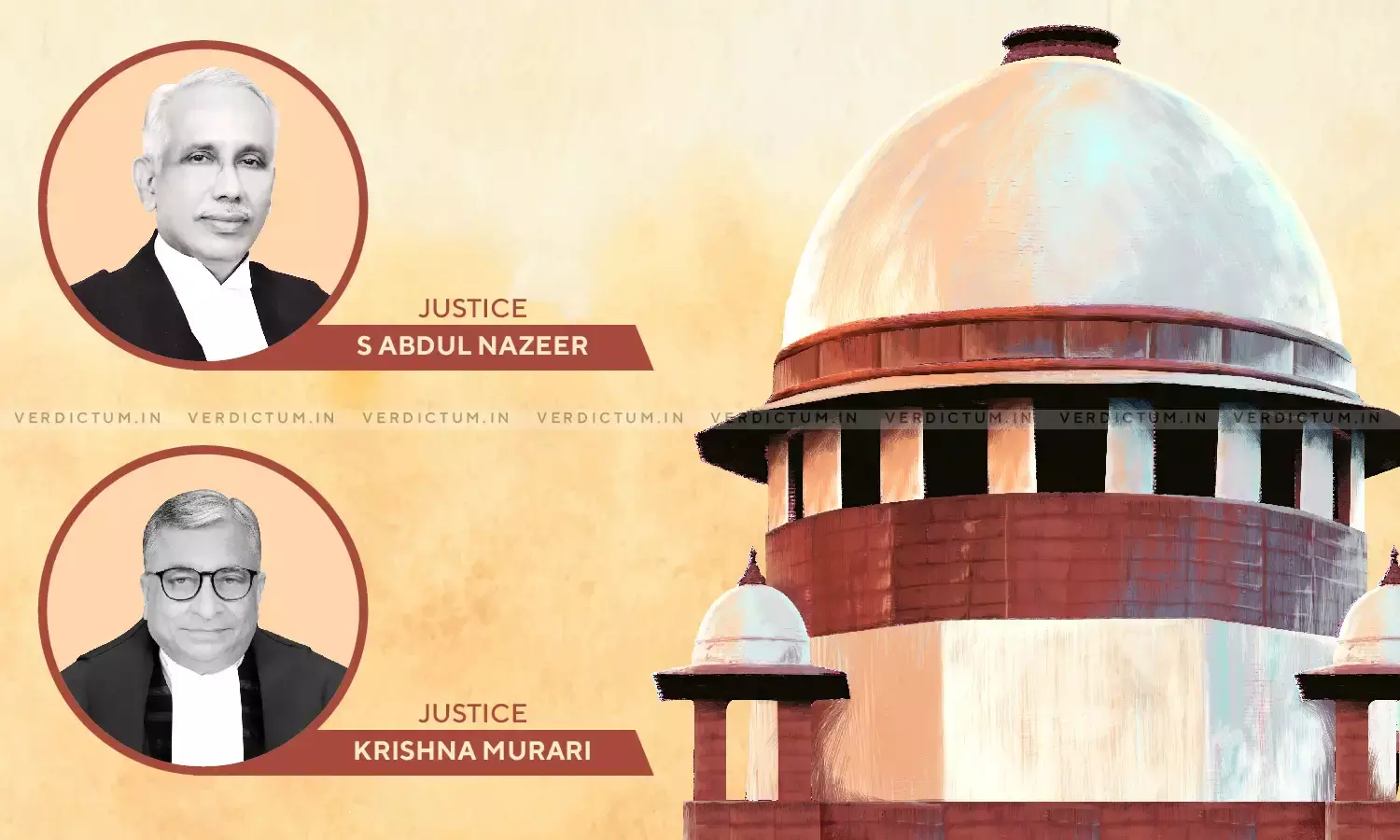Appeal U/s. 100 Of CPC Can't Be Dismissed Without Giving Reasons Even If It Doesn't Involve Substantial Question Of Law: Supreme Court

A Bench of Justice S. Abdul Nazeer and Justice Krishna Murari has ruled that the High Court cannot dismiss the Second Appeal filed under Section 100 of the Civil Procedure Code (CPC) in limine without assigning any reasons for its conclusion even if the appeal does not involve any substantial question of law.
The Bench observed that, in case the appeal does not involve any substantial question of law, the High Court has no other option but to dismiss the appeal. However, in order to come to a conclusion that the appeal does not involve any substantial law, the High Court has to record the reasons.
"Giving reasons for the conclusion is necessary as it helps the adversely affected party to understand why his submissions were not accepted. The Court must display its conscious application of mind even while dismissing the appeal at the admission stage. In our view, the High Court cannot dismiss the second appeal in limine without assigning any reasons for its conclusion," the Court stated.
In this case, High Court of Orissa had dismissed the appeal in limine while confirming the judgment passed by Additional District Judge. The High Court order stated that, "Considering the submission made herein and going through the question of law, this Court does not find any question of law for admitting the Second Appeal for which the Second Appeal stands dismissed." The order was challenged by the Appellant (Defendant in the suit) mainly on the ground that it is not supported by any reasons.
After hearing the parties, the Bench considered the question whether the High Court was justified in dismissing the second appeal, filed under Section 100 of the CPC, in limine.
The Bench stated the procedure contemplated under Order XLII of the CPC while deciding the appeals from the appellate decrees and has to follow it to the extent possible.
"It states that the Rules of Order XLI shall apply, so far as may be, to the appeals from appellate decrees. Words such as "so far as may be '' or "insofar as" mean 'as much' or 'to the extent' or 'to such extent'. By virtue of Order XLII Rule 1, the provisions of Order XLI are applicable to second appeal as well, though not in their entirety, but to certain extent. Having regard to the mandate contained in Order XLII, the High Court, while hearing a second appeal, has to follow the procedure contained in Order XLI to the extent possible," the Bench stated.
The Court mentioned, Section 100 of the CPC provides for a right of second appeal by approaching a High Court and invoking its aid and interposition to redress error(s) of the subordinate court, subject to the limitations provided therein.
"An appeal under Section 100 of the CPC could be filed both against the 'concurrent findings' or 'divergent findings' of the courts below. Sub-section (1) of Section 100 of the CPC states that a second appeal would be entertained by the High Court only when the High Court is satisfied that the case 'involves a substantial question of law'. Therefore, for entertaining an appeal under Section 100 of the CPC, it is immaterial as to whether it is against 'concurrent findings' or 'divergent findings' of the courts below," the Bench stated.
"It is needless to state that even when any concurrent finding of fact is appealed, the appellant is entitled to point out that it is bad in law because it was recorded de hors the pleadings, or it was based on no evidence or it was based on misreading of material documentary evidence or it was recorded against the provision of law or the decision is one which no Judge acting judicially could reasonably have reached. Once the High Court is satisfied, after hearing the appeal, that the appeal involves a substantial question of law, it has to formulate that question and direct issuance of notice to the respondent," the Bench further stated.
The Court allowed the appeal and remitted the matter back to the High Court for fresh disposal in accordance with law.
Click Here to Read/Download the Judgment

